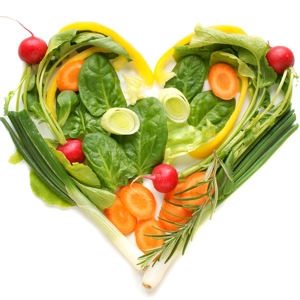Pepsi has taken the plunge into pre-biotic-enhanced products, rushing to get on the bandwagon… What’s the Big Deal with pre-biotics? Why should we all be so excited about them? Are pre-biotics really a major nutrition trend, or just another fad?
What are they?
Wikipedia offers one of the clearest, simplest definitions of pre-biotics I’ve seen yet…
“Pre-biotics are compounds in food that foster growth or activity of beneficial microorganisms such as bacteria and fungi. The most common environment concerning their effects on human health is the gastrointestinal tract, where prebiotics can alter the composition of organisms in the gut micro-biome.
“Dietary pre-biotics are typically nondigestible fiber compounds that pass undigested through the upper part of the gastrointestinal tract and help growth or activity of advantageous bacteria in the colon by acting as substrates for them. They were first identified […] in 1995.”
Not without controversy
Pre-biotic food ingredients and supplements have also been controversial since they were first introduced, too… For one thing, The Mayo Clinic notes, “The health benefits of currently available prbiotics and prbiotics have not been conclusively proved.”
“Depending on the jurisdiction, they may have regulatory scrutiny as food additives for the health claims made for marketing purposes,” Wikipedia adds.
One criticism of pre-biotics comes from their tendency to trigger digestive upsets including gas and bloating.
What’s the sudden notariety?
Lately, many common types of food products, as well as straight-up ‘pure’ pre-biotic supplements have been getting heavy marketing and promotion treatment after a series of scientific studies suggested they could help strengthen users’ gut biomes which, in turn, can bolster the immunity system and fight inflammation.
“Common pre-biotics used in food manufacturing include beta-glucan from oats, [and] resistant starch from grains and beans…”
[Now you know why nutritionists want us all to eat more whole grains and legumes! ~ M.J.]
But the ususal ‘populist’ boosters of such ‘trends’ have gotten behind pro- and pro-biotics and the online hubbub has become deafening.
A trend for the 2020s?
To top of all that, reputable marketing and nutrition information sources have been including pre-biotics in their ‘official’ lists of foodsphere trends for the coming year through the end of this decade.
And that’s turned the growing interest in them to a stampede of supporters from the health-food and supplement-booster community. Not only have pre-biotics been touted as beneficial because they promote the proliferation of pro-biotic compounds, they’re being billed as superfoods in themselves. And that’s got regulators and serious scientists worried consumers may put too great an emphasis on the supplements. To the exclusion of natural sources of pre-biotics such as fresh fruits and veggies.
Why the rush?
Snack and particularly recreational beverage makers have taken the pre-biotic boom to heart. And have been suggesting that their products would be great ‘carriers’ for pre-biotics – an ideal way to get more of hem into our bodies. Especially kids, who are among those most heavily addicted to junk food – and fizzy drinks, in particular.
That’s why Pepsi originally started its own full-on pre-biotic development program and announced its own brand: Soulboost. But the opportunity to buy upstart competitor Poppy pre-biotic beverages, was too tempting to pass up. Pepsi is shelling out something like $2 billion for Poppi. And will carry on using the already-established Poppi brand identity in marketing and sales efforts.
The Poppi purchase thrusts Pepsi into the forefront of the pre-biotic market, catching it up with the competition and – Pepsi hopes – giving it a boost in its efforts to regain second place (at least) in the international soda populatiry sweepstakes…
My take
There’s no question what Pepsi is up to… Even the advertising company handling Pepsi’s takeover of Poppi has taken out major ads of its own in the marketing industry media (see big image, above), taunting the opposition: “Pepsi buys Poppi. Your move, Coke.”
My questions to you:
Do you believe that pre-biotics are as important to our systems as the boosters claim they are?
As with other types of supplements and additives… Pre-biotic pills and powders have been knocked by nutritionists are less effective than their fresh-source couterparts.
Do you agree with the ‘fresh’ boosters – as I do – who insist that fresh fruits and veggies provide forms of pre-biotics that are easier for our bodies to absorb and make use of?
And, therefore, more beneficial?
Do you agree – as I do – that fresh sources of pre-biotics are a better investment in these times of high food prices, even if they’re occasionally more expensive than pills or powders?
Muse on that…
~ Maggie J.


